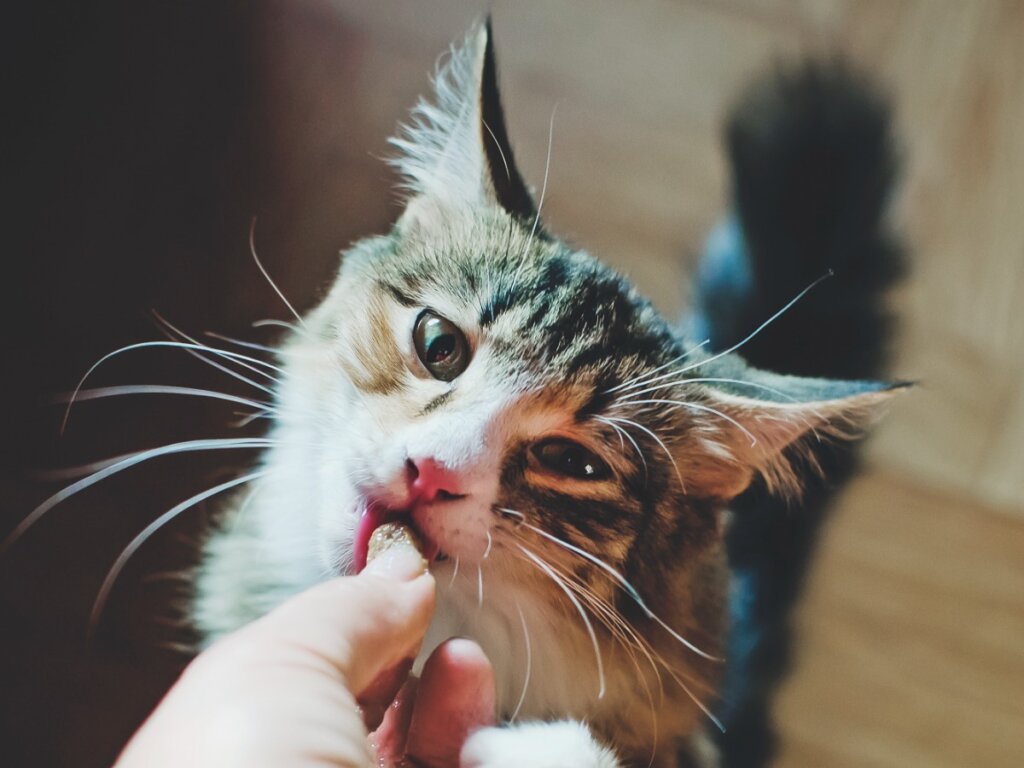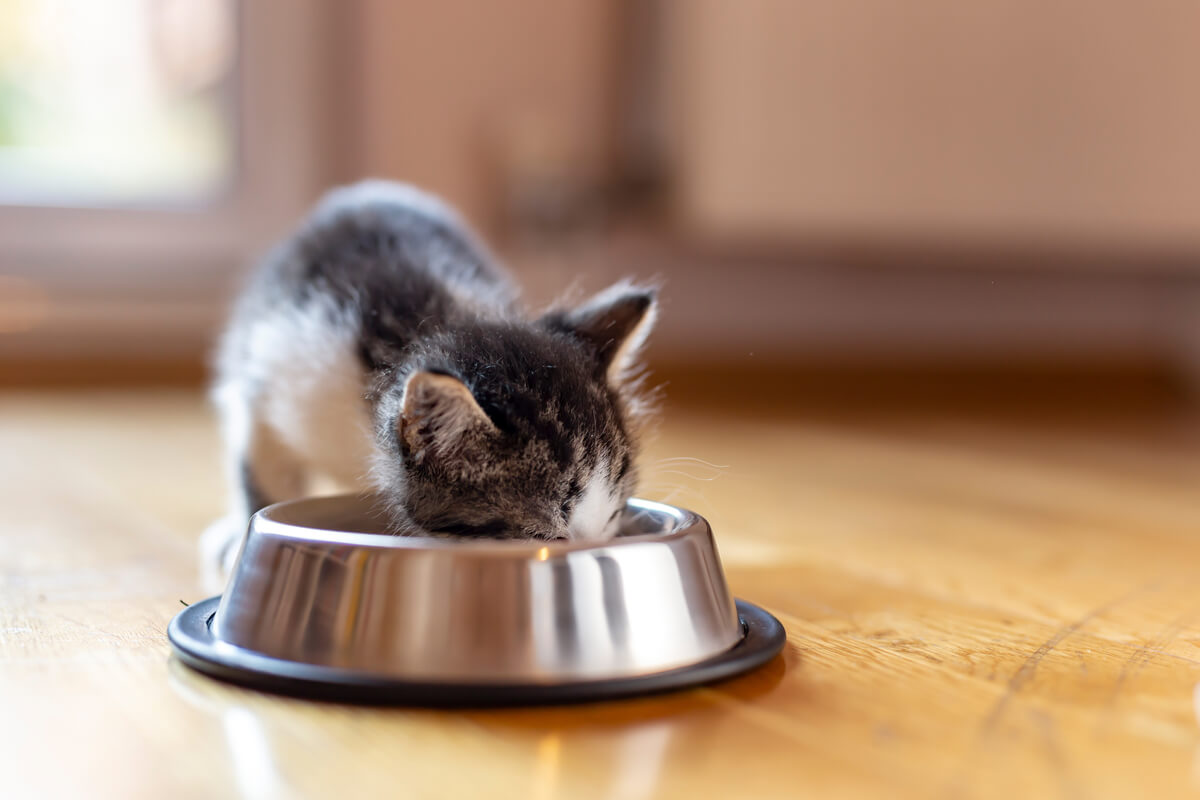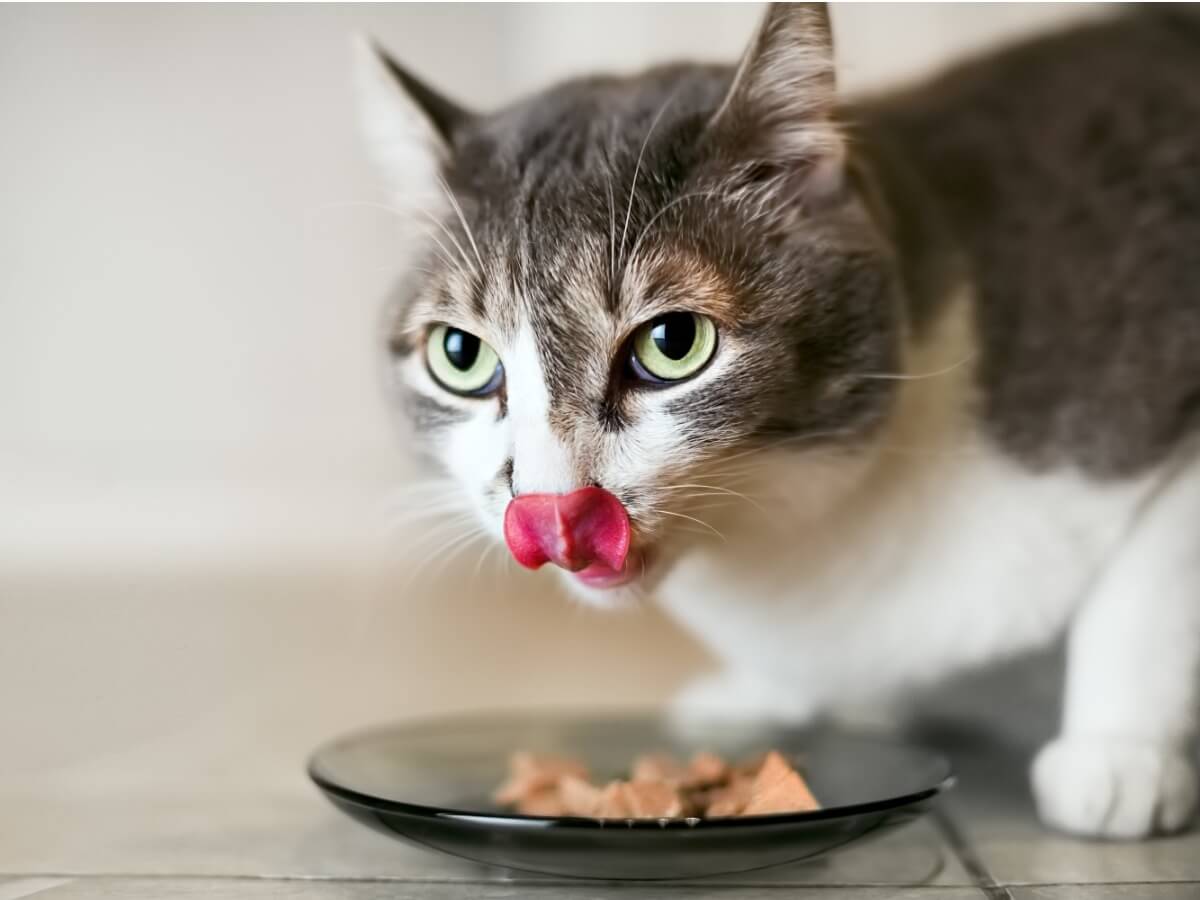8 Keys About Feeding Cats According to Their Age
Not all cats can feed in the same way. Their breed, physical condition, and other factors determine the best way to feed them.

Although many people believe all cats can eat the same food, you actually need to take their age into account. Similarly, their health and breed determine the food they should eat. Learn all about feeding cats in this article.
Cats, like any other pet, require a specialized diet at each stage of their lives. Next up, we’ll give you 8 keys to ensure a healthy and quality diet for your cat according to its age.
1. Feeding cats: kittens
Growth is, without a doubt, the most important factor when thinking about what to feed a small or newborn cat. Consequently, kittens must have a diet that includes some specific needs, especially in terms of nutrients and proteins. When you provide the essential nutrients, then your kitten is sure to grow well and be healthy.
On the other hand, when a balanced diet isn’t provided, it’s possible that the kitten will begin to have some health problems.
Thanks to the mother’s milk that kittens receive in their first weeks of life, you can have peace of mind that this will keep them healthy. This is why weaning kittens isn’t recommended before 8 weeks of age, because, before this period, the cat probably won’t be able to eat on its own.
When it’s time to receive the kitten at home, it’s best to buy food especially for kittens. The product must have the ideal kibble texture and size for the kitten’s mouth, as well as the appropriate nutritional values. You can choose between dry feed or a mixed diet, however, you should always have the opinion of a veterinarian.

2. Feeding an orphan kitten
In the case of feeding an orphan cat, you should take into account that, if it’s less than 3 weeks old, it can only be nourished on the basis of milk. Similarly, it’s important to clarify that this milk must be formulated specifically for kittens. It would, therefore, be a bad idea to give them milk for human consumption.
Only after the third week of life do expertsrecommendi offering solid food to an orphan kitten.
This is why it’s always recommended that you go to a veterinarian if you should find an orphan kitten. The professional will determine the animal’s state of health, and will also give the appropriate feeding guidelines that must be followed to the letter. The recommended milk ensures that the kitten receives essential nutrients for its development, such as proteins, minerals, and vitamins.
3. Feeding adult cats
Generally, a kitten becomes an adult after 7 months of life. Therefore, the feeding of the adult cat will start from this age, although several feeds for adult cats vary in the range of recommended ages. Consequently, before starting the change of food from a kitten to an adult, you should read the labels of the feed carefully.
In the case of neutered cats, nutritional needs will vary, as the procedure changes the feline’s metabolism. Similarly, any medical condition the cat may have will also condition their diet.
4. Is it good for a kitten to eat food from an adult cat?
Considering the data provided above, it’s obvious that a kitten shouldn’t eat food belonging to an adult animal. Feed for older cats isn’t recommended for growing kittens because it doesn’t ensure that they will receive all the necessary nutrients to develop well. This is why cat food products are divided according to age.
5. Feeding lactating and pregnant cats
Feeding cats in the lactation or gestation stage requires a composition that guarantees the development and healthy feeding of the kittens. Therefore, when a cat enters either of these two stages, she must receive a different diet than the one she normally has, in order to avoid deficits in the offspring.
On the other hand, the nutritional needs of the mother will progressively increase during pregnancy. During this process, the pregnant cat must accumulate energy reserves so as not to become exhausted during the rearing and feeding of the kittens. For this reason, you must ensure nutrition that meets their needs during lactation and pregnancy.
6. Feeding sterilized cats
The sterilization process in male or female cats progressively decreases their energy needs. Therefore, we don’t recommend feeding cats the same food before and after the process. Since their metabolism will change, as well as their energy levels. This means that if they eat the same amount of food, it won’t expend the fat and this can accumulate and cause obesity.
7. Feeding elderly cats
After 7 or 8 years of life, a cat needs to have a senior diet. If the cat has an illness or condition, then we recommend adapting the diet according to the treatment of the pathology. Older cats are generally more prone to dehydration, so they should be offered the appropriate amount of water and moist food.
Likewise, it’s important to guarantee a palatable diet for the adult cat, with high energy content that motivates it to feed and provides it with enough energy. They won’t be so active these days and won’t be able to lose weight this way. These animals are prone to mouth problems, so the food will have to be softer.
8. How to feed a sick cat?
For cats that already suffer from a disease – such as obesity or diabetes – food should be a vital factor in the well-being of the pet. If you want to guarantee a full and healthy life for your cat, it must be fed or subjected to a strict diet that allows it to lose weight or, at the very least, one that will keep its sugar levels level.
If you would like to offer it homemade food, then you’ll need to consult a veterinarian. They’ll assess the possible risks of offering this type of food to a cat with already diagnosed pathologies. In the case of allergies, hairballs, kidney, liver or heart diseases, some drugs can be used to maintain a healthier diet.

As you can appreciate, feeding cats depends greatly on their age. The most important thing is to understand that each cat and breed is different, and so global or general types of diet aren’t recommended. Knowing the cat’s physical characteristics and state of health, you can get to know what food or diet they should have in order to ensure a full, long life.

